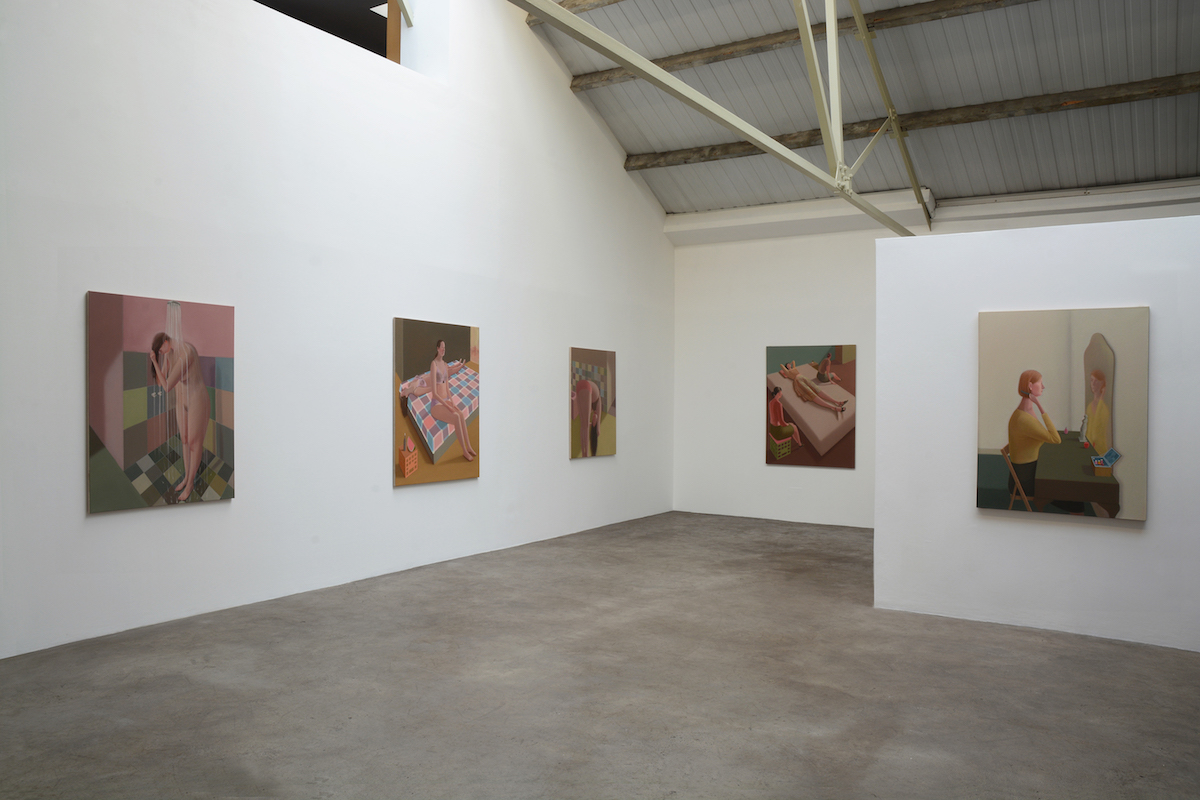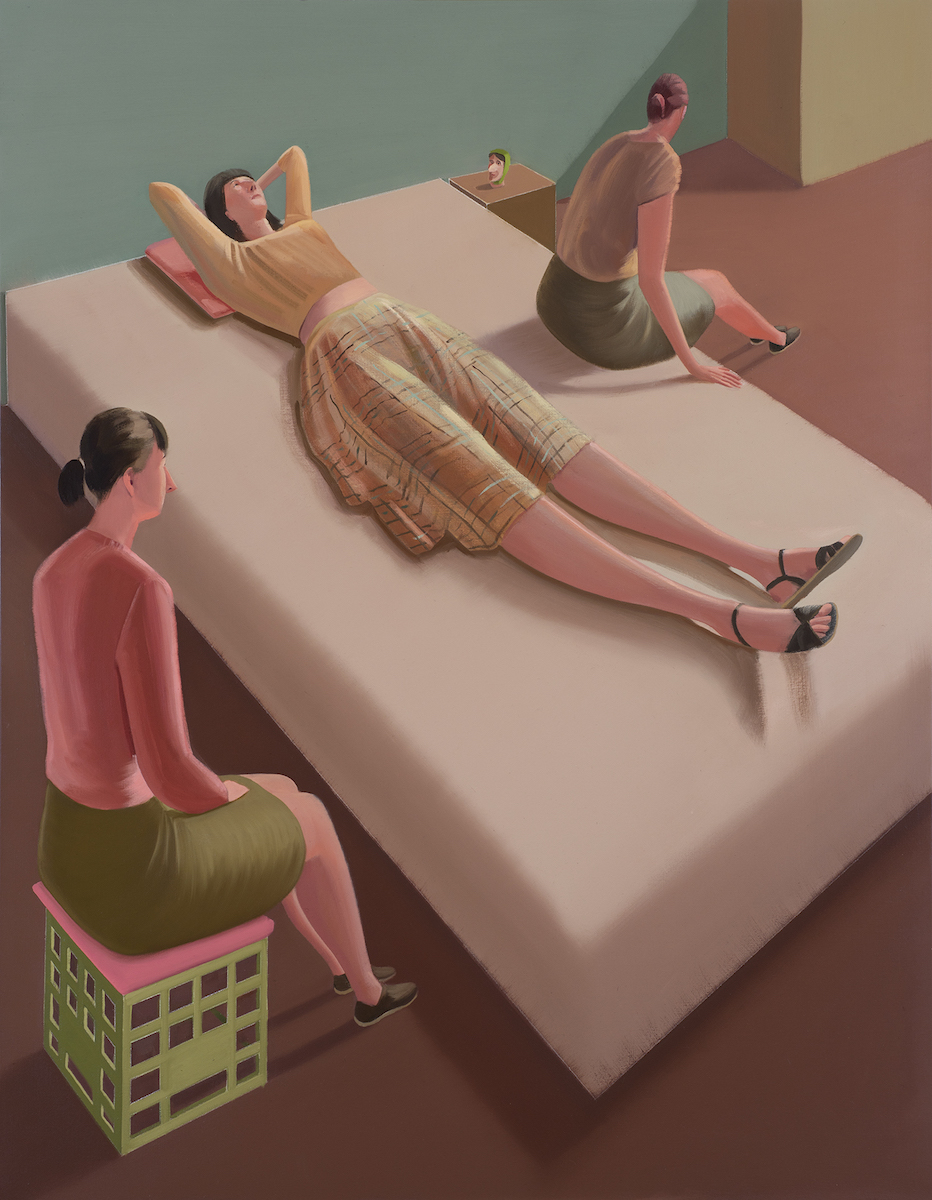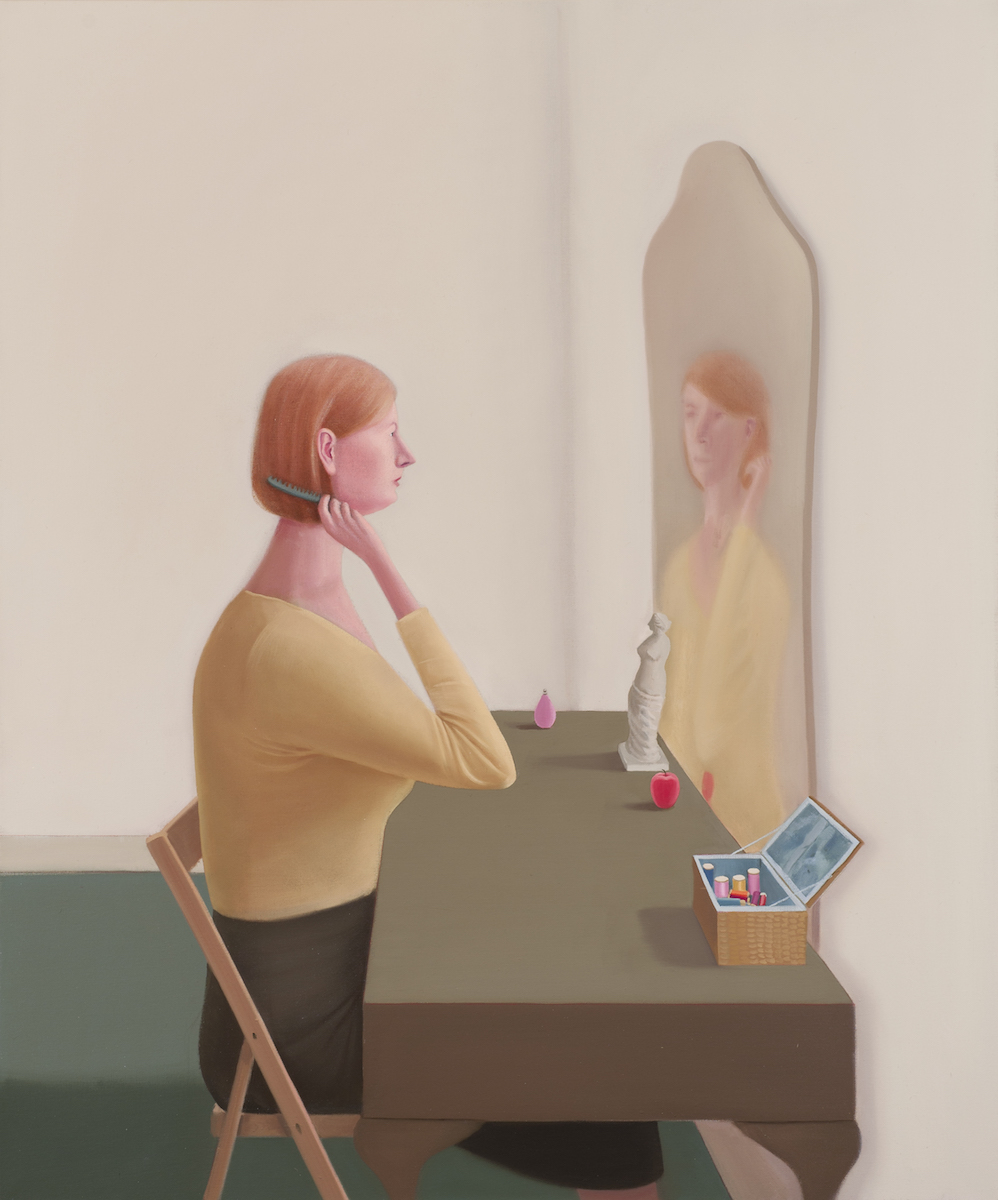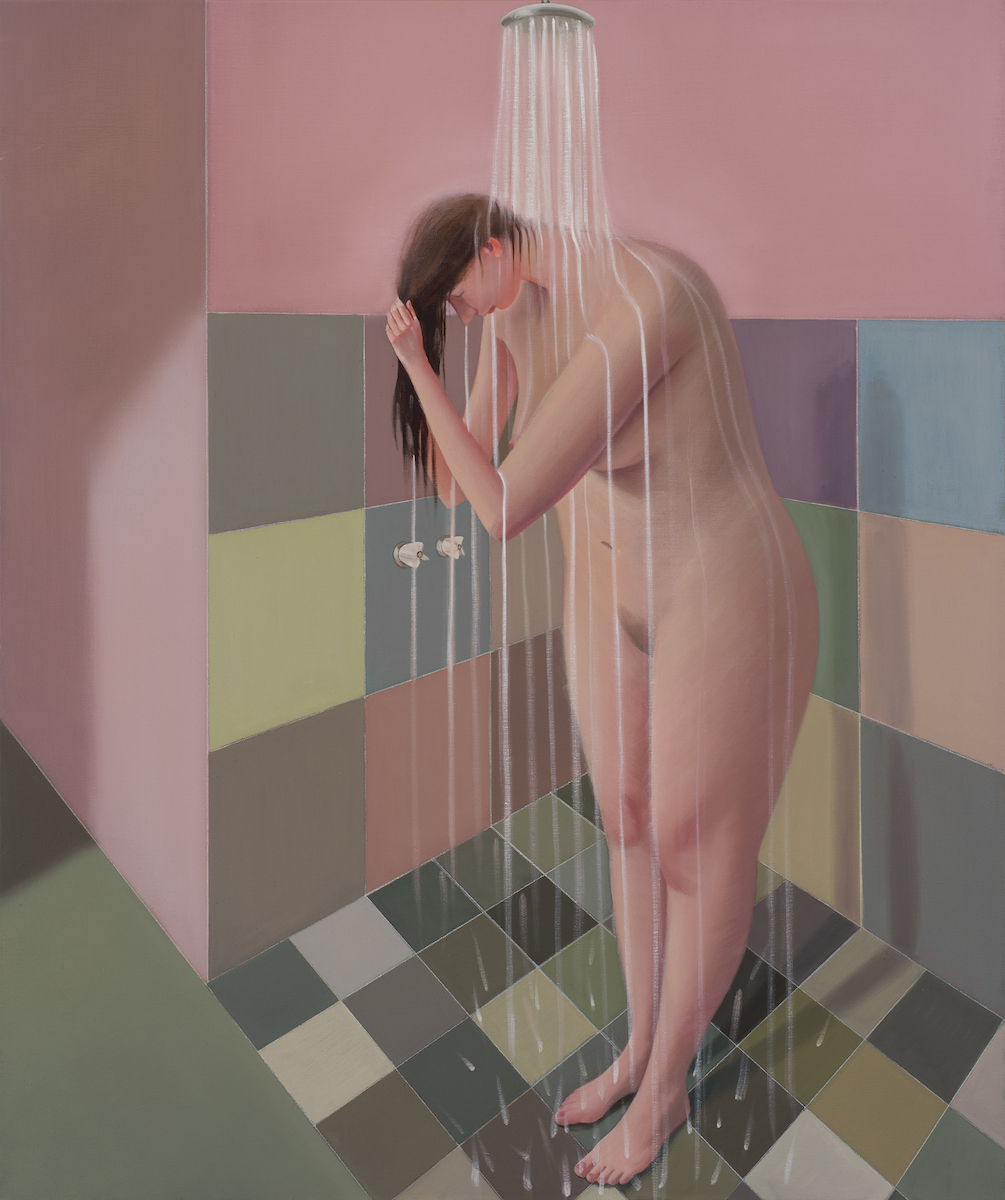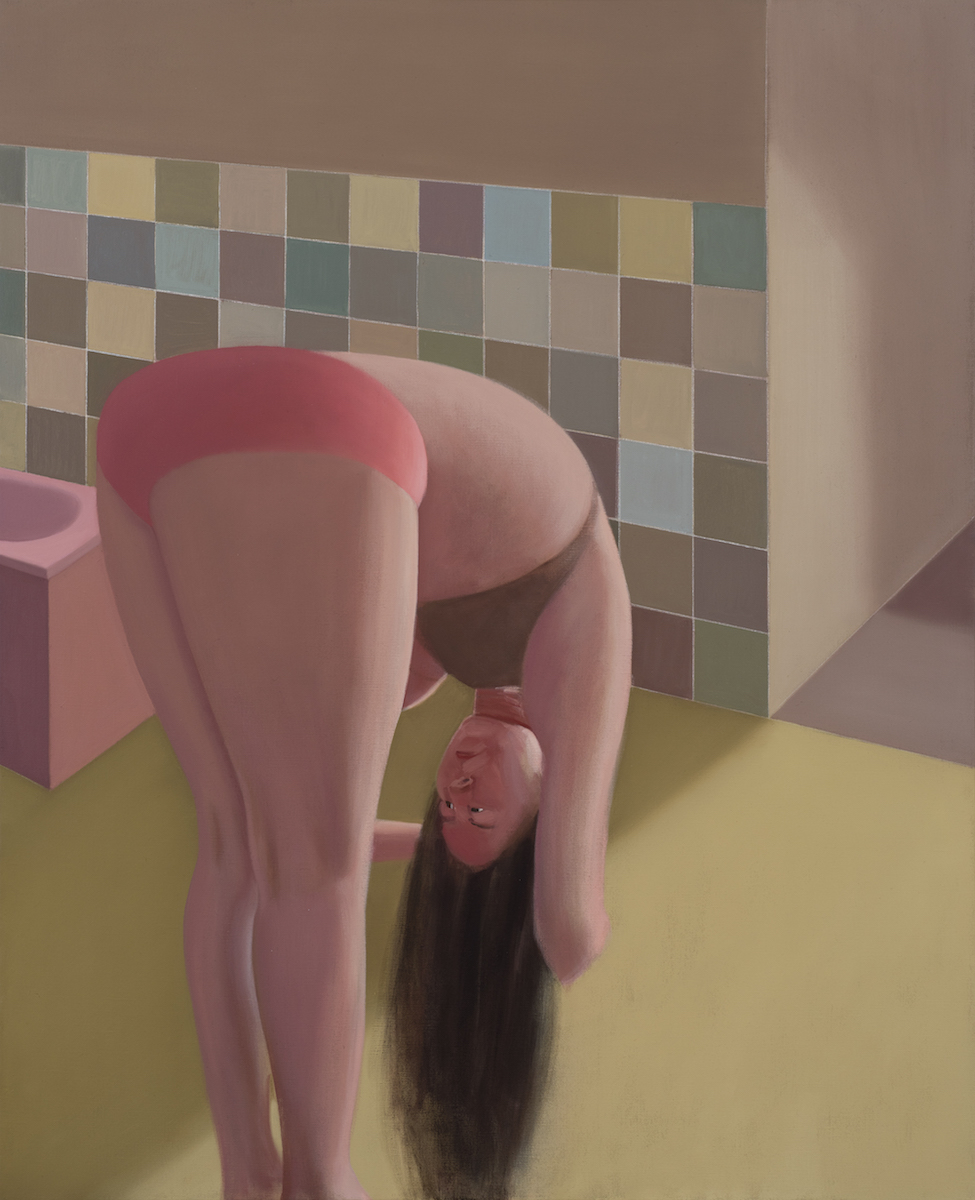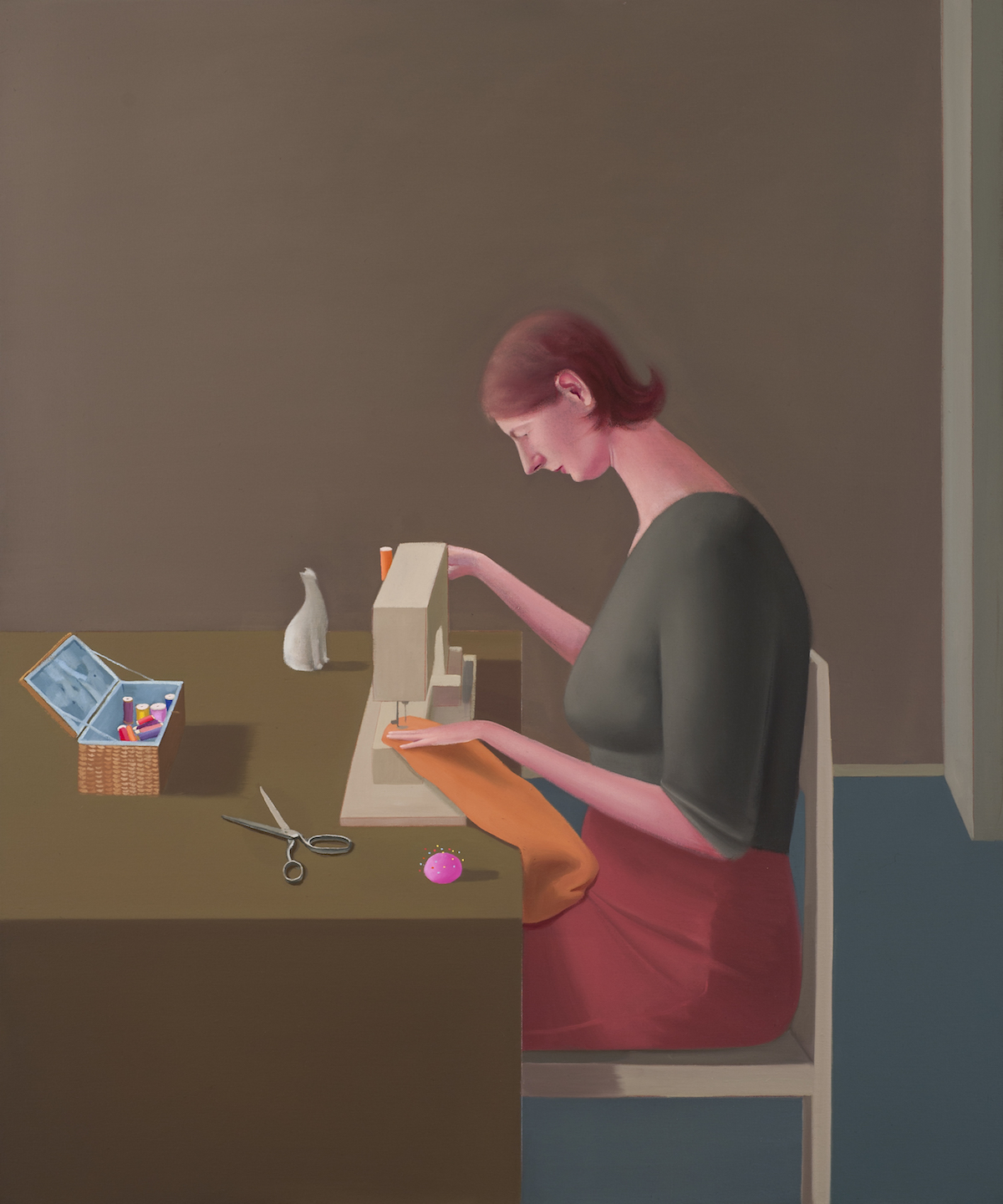Prudence Flint, The Visit, Mother’s tankstation
In Prudence Flint’s paintings, the artist is guided by her desires to capture the essence of women-ness. They conceal a true depiction and instead appear contorted, lending themselves to a broader sense of perspective, through an intimate portrayal drawn from Flint’s experiences of the women in her life.
The tones are soft and muted, varying from pinks or yellows to browns and avoid direct excitement or surprise. This mutedness is continued through the deliberate pictorial flatness, yet with regard to the everyday nature of the paintings, both appear as gendered gestures of femininity.
Like a child’s view, peering into their mother’s or older sister’s room, artworks like Bedsit (2016) or Limbo (2015) offer these moments that are mundane, but exciting in a hidden observer sort of way. In a conversation with the artist, she offers that her paintings reveal a “sensitivity to being big and small, like Alice in Wonderland.” The artworks take the viewer by the hand and guide them through this perspective of looking up and out.
Flint is seduced and fascinated by the female body in paintings. This lends each piece layers that tumble from the composition, deep from the artist’s subconscious; skirts fall softly onto the bed, or taut skin stretches with the arm.
They become an ode to the feminine woman. Flint’s work allows you to peer in on these women, without the masks they put on every day. They are bare and exposed, yet, in this, there is a beauty. Flint adds, “there’s something incredibly gorgeous about being a girl.” Voluptuous bodies fill the compositions of the painting, while embodying a naïve, or candid, view. They are the stars of the artwork, but at the same time, not. Even without the glamour and decadence of social media or fine art museums, these women are at ease in their everyday, mundane settings.
